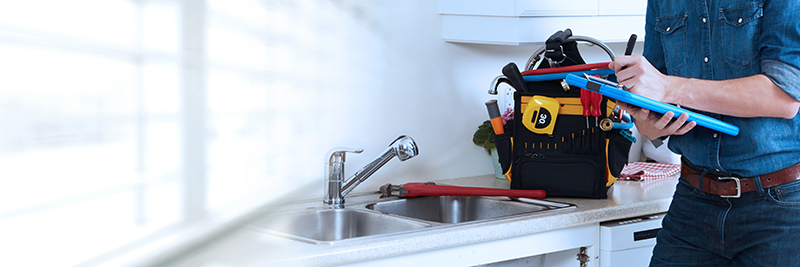
Understanding The Basics of Plumbing
Understanding The Basics of Plumbing
Plumbing is an incredibly broad discipline, referring to a range of tasks and procedures that many people have not heard of before, never mind undertaken. However, to keep your house running, you can get away with knowing just a few standard plumbing techniques and principles. Read on to learn more about the basics of plumbing, some standard processes that make life easier and a few reasons you need to know the fundamentals.
Two simple systems
Involved in what you see as one broad plumbing system is, in fact, two different systems. The first of these is the water supply system, bringing water into your house, heating it and supplying it through a tap when you need it. The second system is water drainage, which refers to the removal of wastewater such as that used in baths and showers. Each one is just as important as the other, providing hygiene and water for a wide range of purposes, so keeping the systems working in tandem at a high standard is key.
How does supply work?
Home water supply works in a simple enough manner. A mains pipe outside the property draws water into the home, separating it into hot and cold water systems once inside the house. The hot water goes to a water heater while the cold stays at its present temperature in the house’s pipes. From this point, the water is distributed to where it needs to be, whether cold water for cooking or hot water for bathing.
How does drainage work?
Where supply pipes are pressurized from the mains, drainage pipes rely on gravity and air pressure in the removal process. Pipes slope down to improve water flow, which takes waste away from the property. The process is aided by vent pipes and gas traps, removing obstacles in the way of your waste and allowing a quick and easy flow away from the property wherever possible.
What processes do I need to know?
The processes that you need to know as a consumer are limited but very important.
• Unclogging a sink: Food waste can buildup over extended periods in a sink, often causing drainage issues. By running hot water into the sink with washing up powder, the clog will break down and your sink will work again.
• Weak water flow: Many people don’t realize that weak water flow, especially in the shower, is usually something they can solve themselves. Simply detach the showerhead and place it in vinegar overnight. The acid will break through any blockages, allowing for a proper flow.
• Bleeding radiators;| You should bleed your radiators annually, a task that involves turning off your boiler, using a radiator key and draining your radiators of water before repressurizing your boiler.
If your issue is not one of these simple tasks, it may be time to call in a plumber. Plumbing is important and it is better to get the processes right at a slightly higher cost than do it yourself, mess up, and pay for significant repairs.